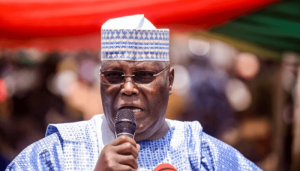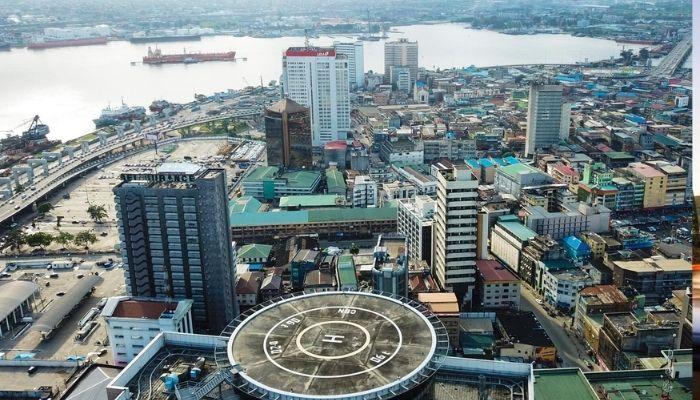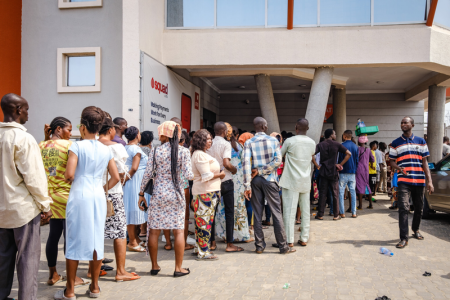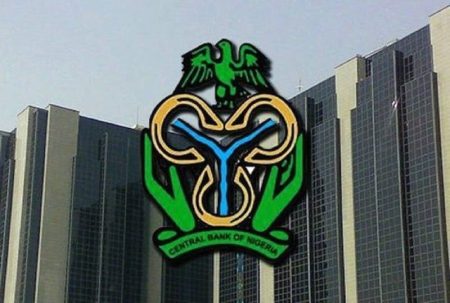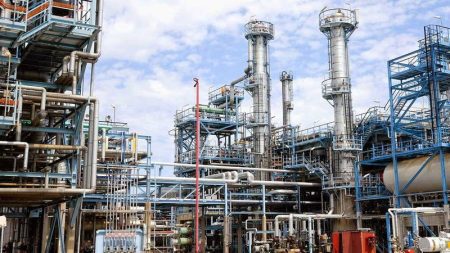Despite Nigeria’s ongoing economic challenges, several companies remain committed to expanding their operations within the country, signaling confidence in its long-term potential. This comes even as numerous multinationals have exited the market due to rising inflation, interest rate hikes, and foreign exchange volatility.
One of the most significant expansions is led by the Dangote Group, which has recently launched a $20 billion crude oil refinery in Lekki, Lagos. This state-of-the-art facility, designed to process 650,000 barrels of oil per day, is poised to meet Nigeria’s domestic fuel needs while also serving the broader West African market. Aliko Dangote, president of the Dangote Group, highlighted that the refinery would produce enough gasoline, diesel, and aviation fuel for the entire continent, with potential exports to markets like Brazil and Mexico.
In addition to its refinery, Dangote is increasing cement production. In February 2023, the group signed an agreement with China Sinoma International Engineering to build a new six-million-ton-per-annum cement plant in Itori, Ogun State. This project, expected to feature two production lines, will increase Dangote Cement’s total capacity in Nigeria to 41.25 million tons per annum, further cementing its dominance in the African market.
Other companies are also making strategic moves. Nestlé Nigeria has expanded its operations by increasing its local sourcing of cocoa to 100%, with the company training over 100,000 farmers. The multinational’s efforts align with its goal to reduce imports and increase domestic inputs in its supply chain.
Similarly, Emzor Pharmaceutical is building a $23 million active pharmaceutical ingredients (APIs) plant in Sagamu, Ogun State. The facility, once completed, will produce 400 metric tons of APIs annually, bolstering Nigeria’s pharmaceutical manufacturing capabilities and strengthening the region’s antimalarial drug supply chain.
BUA Cement, another industry giant, is also increasing its presence. The company recently commissioned a 1.5 million metric ton per annum (mtpa) Kalambaina Cement Plant in Sokoto State. Shortly after, it completed a 3 million mtpa Obu II cement plant in Okpella, Edo State, boosting the group’s total installed capacity to 8 million mtpa.
Eraskorp Nigeria Limited is equally contributing to the country’s economic resilience. The company is building a $50 million lubricant blending plant in Bayelsa State, which will have a production capacity of 128,000 litres per day. The facility, which is more than 70 percent completed, is expected to be commissioned by the fourth quarter of 2024.
Industry experts believe that these companies have adopted strategic approaches to counter Nigeria’s volatile business environment. Uchenna Uzo, a professor of marketing at the Lagos Business School, pointed out that these firms planned their expansions based on worst-case economic scenarios, allowing them to continue growing while other businesses faced setbacks.
“Companies that have expanded are those that invested with an understanding of the country’s economic trajectory,” Uzo said. “Their expansions are strategic and will enable them to capture more market share, create jobs, and drive innovation in the sectors where they operate.”
While some international companies have left Nigeria due to the harsh economic conditions, indigenous firms are scaling up operations. Muda Yusuf, CEO of the Centre for the Promotion of Private Enterprise (CPPE), noted that these local firms are benefiting from new opportunities created by the devaluation of the naira. The weaker currency has made Nigerian goods more competitive in export markets, particularly in the West African subregion, encouraging firms to expand despite the broader economic challenges.
However, the overall manufacturing sector in Nigeria has not been immune to the tough economic climate. According to the Manufacturers Association of Nigeria (MAN), 767 companies shut down in 2023, and another 365 experienced significant distress. Capacity utilization in the sector declined, and unsold goods surged to N350 billion.
Despite these obstacles, companies like Dangote, Nestlé, Emzor, and BUA Cement remain optimistic, with their expansions offering a glimmer of hope for Nigeria’s economic future. These firms’ long-term investments demonstrate confidence in the country’s ability to weather the storm and emerge stronger, providing much-needed employment opportunities and driving industrial growth.





